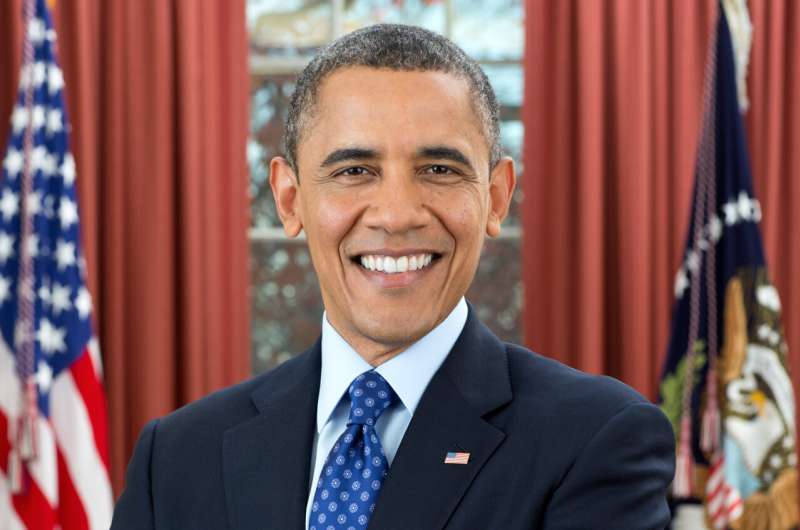
Following Barack Obama’s reelection as U.S. president in 2012, the mental health of college-educated Black men improved significantly, while those who didn’t attend college reported worse mental health, according to new research from Rice University sociologists.
“Four More Years! Or So What? The Mental Health Significance of Barack Obama’s 2012 Presidential Re-Election among Black Adults” is published in the Du Bois Review: Social Science Research on Race.
Lead researcher Tony Brown, distinguished professor of sociology at Rice, said he and his co-authors were interested in following up their study examining the health implications of Obama’s election in 2008—which showed positive mental health effects for Black males—and seeing what, if anything, changed.
Brown and his co-authors examined black adults’ mental health for 30 days prior to and 30 days following the 2012 election. Data for the study came from the Behavioral Risk Factor Surveillance System, a nationally representative survey of 400,000 U.S. adults evaluating different health aspects.
Similar to their study results following Obama’s 2008 election, the researchers found the 2012 reelection resulted in a significant mental health shift for Black men. However, this time around, not all men saw health benefits.
While college-educated Black men experienced nearly three fewer poor mental health days per month following Obama’s reelection, Black men with no college education experienced more than one extra poor mental health day per month.
“Based on our analysis, it appears that Black men with lower levels of education were really disappointed in Obama or at least didn’t feel that he lived up to the hype or followed through on certain promises, like better jobs, health care access and more,” Brown said.
“We also suspect he alienated some Black men—and possibly many Black women—by downplaying the inequality and outright racism faced by these individuals. And this is why we think we’re seeing worse mental health among these individuals.”
Rice Ph.D. student Quintin Gorman Jr., co-lead author of the study, said “relative deprivation theory” may explain the shift in mental health benefits from 2008 to 2012. This sociological theory describes a situation in which individuals sense that when they compare themselves to others, they are deprived of certain resources, and this sense of deprivation can translate into negative health outcomes.
Brown said this chasm between more and less educated Black men was highlighted by Obama himself many times during his presidency. One notable example was a graduation speech he gave at Morehouse College, a historically Black college in Atlanta.
“In this specific situation, he talked about these men who had just graduated in super glowing terms and even encouraged them to ‘pull their pants up’ and not behave like the low-income Black men,” Brown said.
“The rhetoric he used suggested that if you were college educated, then you were deserving of respect, and we believe this type of communication during Obama’s presidency is just one example that could explain why less educated Black men felt the way they do and why we saw their mental health worsen.”
As for Black women, like in 2008, they did not experience any mental health benefits from Obama’s reelection. While Brown could not pinpoint a specific reason, he says there are a few possible explanations.
“We theorize that Black women could have been concerned over death threats toward Obama, worrying about him in the same way they would worry about their own husbands, fathers or sons,” Brown said.
“They might also have been concerned over how President Obama would deal with discrimination against Black men versus Black women or doubt whether any racial progress would happen, especially since so little changed after 2008.”
Brown also said Black women may have worried that Obama’s reelection would result in a racial backlash in years to come, resulting in the country moving back toward a racist “status quo.”
The researchers said they hope this study will encourage Black people to be more engaged politically, voting for candidates who will advocate for them and address inequality, broadly defined. They also hope health scholars will reimagine social determinants of health to include large-scale socio-political shifts like elections.
More information:
Tony N. Brown et al, Four More Years! or So What?, Du Bois Review: Social Science Research on Race (2024). DOI: 10.1017/S1742058X24000043
Provided by
Rice University
Citation:
Obama’s 2012 reelection tied to better mental health in educated Black men, study suggests (2024, September 24)
retrieved 28 September 2024
from https://phys.org/news/2024-09-obama-reelection-mental-health-black.html
This document is subject to copyright. Apart from any fair dealing for the purpose of private study or research, no
part may be reproduced without the written permission. The content is provided for information purposes only.


